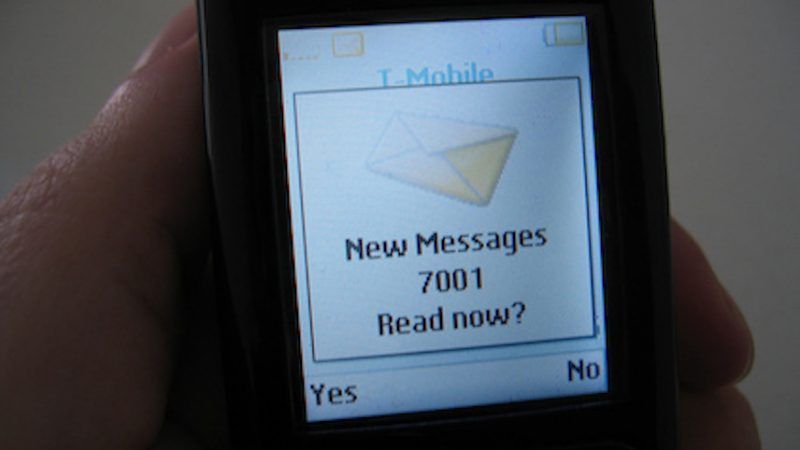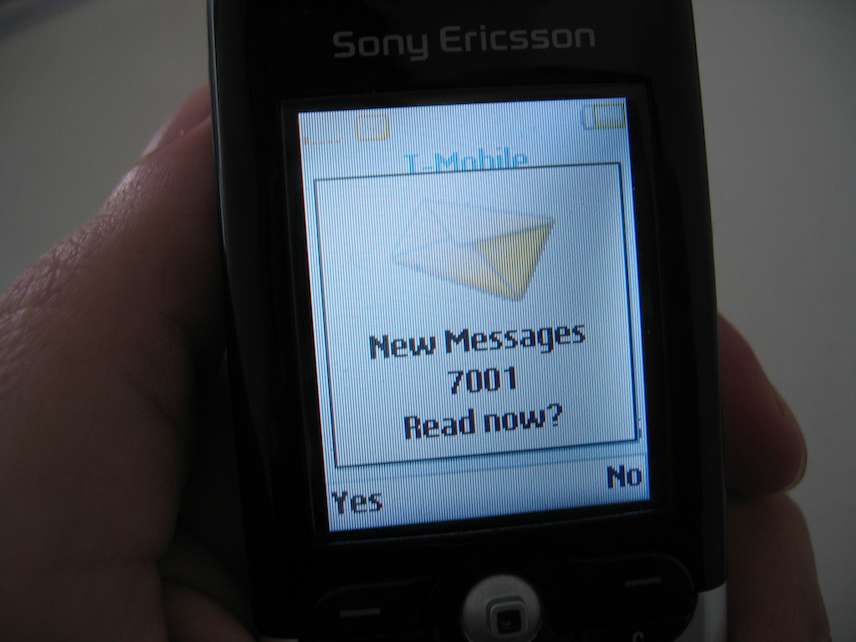Teen Found Guilty of Manslaughter for Texting Suicidal Boyfriend
The law should not treat words as violence.


On the night of July 12, 2014, 18-year-old Conrad Roy III killed himself by inhaling carbon monoxide in a Kmart parking lot in Fairhaven, Massachusetts. His 17-year-old girlfriend, Michelle Carter, was miles away in Plainville. (*) Yet today Carter was convicted of involuntary manslaughter for Roy's death. She faces up to 20 years in prison.
Why? Because Carter had repeatedly texted Roy prior to his death, "you just need to do it." Bristol County Juvenile Court Judge Lawrence Moniz declared this illegal, even though there is no law in Massachusetts against encouraging suicide.
This was a bench trial, so the judge rather than a jury determined the verdict. His ruling threatens the very core of how our legal system approaches speech.
The law has traditionally treated some sorts of speech, such as defamation, as a type of nonviolent harm. And in some crimes, such as incitement or conspiracy, the law says speech can be a proximate cause of violence. But this ruling treats speech itself as a form of literal violence—as the immediate cause of death. As the American Civil Liberties Union put it in a statement, the prosecution's theory is that Carter "literally killed Mr. Roy with her words. This conviction exceeds the limits of our criminal laws and violates free speech protections guaranteed by the Massachusetts and U.S. Constitutions."
A month before Roy took his life in June of 2014, Carter had attempted to talk her depressive boyfriend out of killing himself. Roy had already attempted suicide before; when he considered another attempt, Carter texted, "I'm trying my best to dig you out." But by July Carter's texts had taken a turn for the perverse. She told him repeatedly that suicide was the only way out. On July 12th, when Roy got sick from carbon monoxide and stepped out of his car, Carter texted him to "get back in."
What motivated Carter to do this? The prosecution painted a picture of a teenager who wanted attention for her recently deceased boyfriend. The defense maintained Carter struggled from an eating disorder and depression and, at the time of Roy's death, was "involuntarily intoxicated" with antidepressants.
Neither scenario matters. Whatever her motives or her poor choices, the important legal question is whether her words actually caused Roy's death. And it was carbon monoxide poisoning that killed Conrad Roy, not Michelle Carter's messages.
Carter's punishment does not fit the crime. Involuntary manslaughter is a conviction for a negligent surgeon, for an abusive husband who unintentionally kills his spouse, for a drunk driver who accidentally runs someone down. A reckless text is not a reckless, swerving car. Words are not literal weapons, and the moral turpitude of Carter's comments does not change that.
Some legal experts have speculated that the judge's ruling was an attempt to convince lawmakers to pass legislation making people liable for their online speech. But even if such a bill were a good idea, you shouldn't convict someone for committing a crime that doesn't exist in the hope that lawmakers will someday pass a law to fit the crime. This isn't how our judicial system works.
Let's hope an appeals court strikes it down. As Reason's Elizabeth Nolan Brown asked when the charges were first brought, "Do we really want to charge teens as killers for reacting imperfectly to loved ones' pain and mental illness?"
(* Correction: This post originally stated that that Roy killed himself in Fairhaven, Kansas; in fact it was Fairhaven, Massachusetts.)
